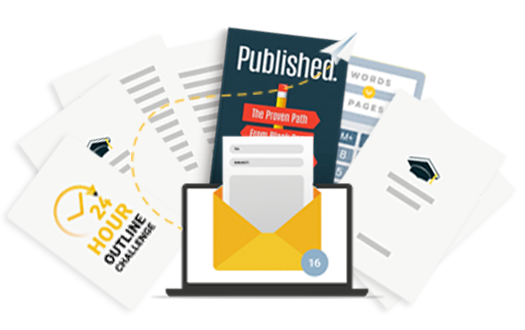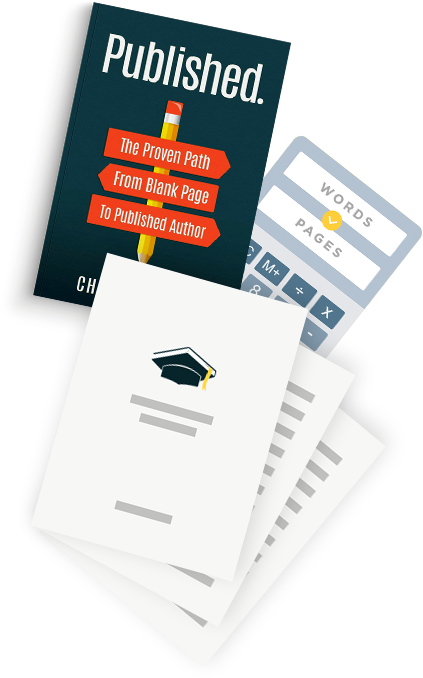Do you find your characters lack ~spice~? Do they seem too much like “characters” instead of seeming like a real person?
Having a flat character makes it difficult for your reader to connect with them, which makes it difficult for readers to fully immerse themselves in your story. And that’s no fun! Your characters might need more developed flaws.
Let’s talk about:
This guide to character flaws covers:
What is a Character Flaw?
A character flaw is exactly what it sounds like–some imperfection in your character that makes them relatable, realistic, and interesting to read about. The flaws can be big or small, irrelevant or life-ruining. No one likes a perfect character. Perfect characters are boring. Combining strengths and weaknesses together make a 3-D character that readers can find relatable and interesting.
There are so many varying degrees to which a character could be flawed. “Forgetting people’s birthdays” is a flaw, and “cannibalism” is a flaw. Those flaws aren’t really twins OR sisters though, are they?
Let’s look at three basic types of character flaw–minor, major, and fatal.
Minor Character Flaw
A minor flaw is what I call the Flavor Flaw. These are little quirks that set your character apart as an individual, making them a bit more interesting to read. They don’t necessarily hinder the character, bother other characters, or have a big effect on the story. They might be mental, physical, emotional, or circumstantial.
Examples of minor character flaws:
- Nail biting
- Stuttering
- Keeping a messy bedroom
- Laughing in awkward moments
- Drinking too much coffee
- Suffering from a bad case of RBF
Major Character Flaw
A major flaw is more serious. It can impact the story, hinder the character, and create strife between characters. This flaw will significantly affect your character’s life, but might not necessarily ruin everything. A major character flaw can be something mental, physical, emotional, etc.
Examples of major character flaws:
- Substance dependency/addiction
- Unhealthy attachment style
- Awful personality that makes people dislike them
- Anger management issues
- A serious injury or disability
Fatal Character Flaw
The fatal flaw is very serious. This is the flaw that will cause your character’s downfall, or even their death. Aristotle’s definition of a tragedy is a story where the protagonist causes their own demise, so the fatal character flaw is a trait of Aristotle’s heroes, even if the result isn’t literally death. It could be a “moral death,” the end of a relationship, or the death of a way or life.
Examples of fatal character flaws:
- Pride
- Ignorance
- Sacrificing yourself intentionally with the misplaced idea that it will protect someone else
- Self-sabotage
Ideally, your characters will have a mix of major and minor flaws, and perhaps a fatal flaw if the narrative calls for it.
Now that we know what a character flaw is and the different types we might encounter–why do we care?
Why do Character Flaws Matter?
Like I mentioned before, flaws make your character more interesting and more relatable. To have a round character that feels real, we need good traits, bad traits, and traits in between. Writing a story with a fully white or fully black character likely won’t engage readers very effectively.
They Make Your Characters Relatable and Likable
No one wants to read about a goody-two-shoes protagonist who has no flaws and has never made a mistake. How would you even write a character arc for that character? They’re already perfect!
They Distinguish Characters From Each Other
Minor flaws make a character likable and unique. Little oddities are fun for readers and bring characters to life. Make your characters different and memorable by giving them special flaws.
Flaws Create Obstacles
If a character has a significant flaw, they have something to overcome, which is what will lead to your character’s arc.
If your character has a weakness, that opens the opportunity for another character to exploit that weakness, which will give the story conflict and intrigue.
Multiple flaws will give a character multiple obstacles to overcome, which is what makes a story interesting to read.
As you can see, there are tons of reasons that flaws are important in every character we write. So how do we do it?
How to write character flaws effectively
Here are a few tips for making a character flaws realistic, relatable, and impactful.
Contrast Their Weaknesses With Their strengths
A character’s strengths and weaknesses should make some sense when you look at them side-by-side, when you look at the character’s motivation, and when you look at the character’s backstory.
For example, if a character had to stand up for themselves as a kid, they might have the strength of honesty and the weakness of having no conversational filter. That pairing of strength and weakness make sense with each other and for the character.
If a character had helicopter parents, they might have the weakness of not being self-sufficient, but the strength of being emotionally open with a secure attachment style. This pairing of strength and weakness also makes sense with each other and for the character’s background.
Relate The Flaws to The Plot
The plot of a story, in general, can be thought of as the weakness a character overcomes. They have to accomplish something and they have a flaw that is getting in their way. A character’s arc can interact with the plot in many ways, but there should be a reason that specific character is the one in that story. What strengths and weaknesses make them a good eye to see the story through? They should be connected.
Connect the flaws with the Character’s Arc
We’ve pretty much already covered this, but to make sure we’ve hammered it in: your character flaws are important so that they have something to overcome to complete their arc. In what way does the story facilitate their addressing and prevailing (or failing to prevail–prefailing, if you will) their own weaknesses?
Use Multiple and Varying Degrees of Flaw
Like we covered, there are multiple types of flaw–major, minor, and fatal. Give your character a mix of little and big flaws, because that’s how people are. The more contradicting traits you can give a character makes them more and more real.
Make Them Realistic
There are many ways to create unrealistic character flaws. One way is by having none at all. Another might be only having very cute, minor flaws. People are ugly and complicated! Your characters should be too.
See how you can relate your character’s flaws to their strengths, the plot, and the character’s arc. Then use multiple and different types of flaws to make sure that they’re realistic.
Let’s look at a few more examples of character flaws to get some ideas flowing for how to really eff up our characters.
Examples of Character Flaws
I’m going to give you a list of minor and major character flaws, but skipping over fatal flaws since those are fewer and tend to be more abstract.
Minor Character Flaws
- Socially awkward. Maybe they make people uncomfortable, but they’re not being intentionally malicious.
- Dull. Again, it might be hard to have a compelling conversation with them, but they aren’t doing anything wrong.
- Gossip/busybody. This might hurt a few feelings, but not a huge deal.
- Lazy. This flaw would affect the character more than other people, so it’s hard to be too mad about it.
- Squeamish. This might be a relevant flaw for a character in a mystery or adventure novel that throws up at the sight of anything gross.
- Mischievous.
- Gullible.
- Spoiled.
- Dishonest.
- Jealous.
- Cold.
- Spiteful.
- Melodramatic.
- Vain.
- Too trusting.
- Unintelligent.
- Physically impaired, either temporarily or permanently.
- Egotistical.
- Messy/cluttered. Maybe they’re a hoarder, maybe their collection of Funko Pops is just a little too big.
- Forgetful/unorganized.
- Immature/incapable of taking care of themselves.
- Know-it-all.
These are flaws that just make the character a bit more interesting and realistic. Some of them could be expanded or prodded upon to make for real obstacles in their daily life or in the overall character arc, but for the most part, they’re not doing any real harm. That’s where our major character flaws come in.
Major Character Flaws
- Cruel or abusive personality.
- Racist, sexist, bigotted.
- Machiavellian.
- Manipulative.
- Homicidal.
- Obsessive. Either being so consumed by something that they fail to function as a regular human being, thus hurting themselves and anyone who relies on them, or the more extreme–being obsessed with a specific person, thus causing that person great discomfort or harm.
While the minor flaws listed could be aggrandized into major problems, these major character flaws I listed are always going to be story-altering issues. These are heavier, darker character traits that can make a story very serious and maybe unpleasant to read, so they aren’t for everyone! Sometimes it’s plenty enough to take something like the examples of minor flaws I listed and expand those into issues that would affect the character’s life enough to create a compelling obstacle for them to overcome.
So don’t be afraid to mess your characters up!
Give them low-stakes, everyday flaws that we all have in spades–but also give them deeper, more complicated issues that they can overcome and then learn from.
Think of your favorite characters–what are their biggest flaws? Do they overcome them by the end of the story? How did overcoming those flaws change them as a person? Did it also change the outcome of the story? Let us know in a comment!




